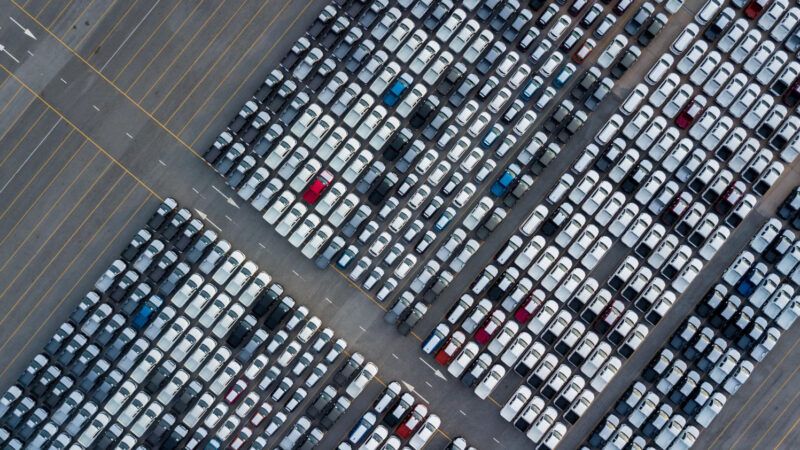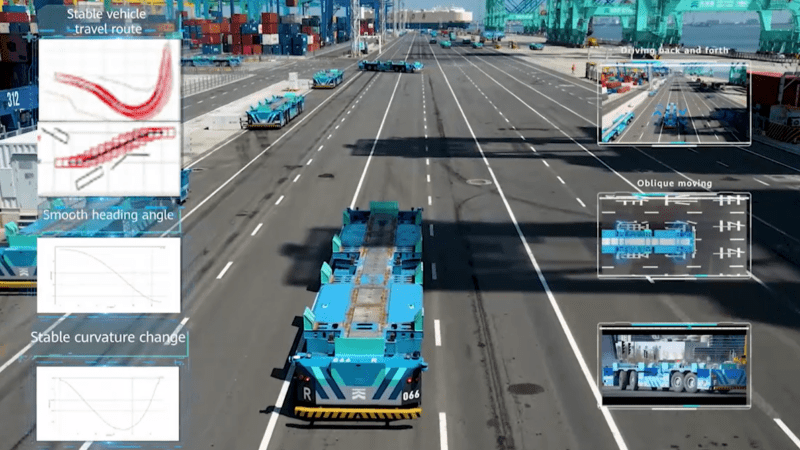 Four voices from different but linked fields discussed how to attract the workforce of the future (Smartports.tv).
Four voices from different but linked fields discussed how to attract the workforce of the future (Smartports.tv).
How is the logistics sector attracting the new generations?
In 2030, 74% of the total global workforce will be made up of the Millennial and GenZ generations. For these age groups, technology will be one of the factors that will unbalance the work balance. Is the logistics and port sector prepared for the new generations?
 Four voices from different but linked fields discussed how to attract the workforce of the future (Smartports.tv).
Four voices from different but linked fields discussed how to attract the workforce of the future (Smartports.tv).
Attracting talent, highly prepared, digitally trained and with skills that facilitate innovation is what any sector is looking for. Including the port logistics sector. Very much so. So much so that in the 2022 edition of Smart Ports: Piers of the Future the panel 'Building the workforce at the ports of the XXI century' was organised to analyse how to attract new generations. This debate featured four voices from different but interrelated fields, such as ports, education, start-ups and public administration.
For all of them, attracting this talent and creating jobs "that do not yet exist," as Ricard González, founder and CEO of Infraplan Geospatial, pointed out, is going to be fundamental. But how do they plan to do it?
The job expectations of the new generations
"At the university we are in contact with young people and we see a big change in their job expectations. Salary is no longer a priority. They are interested in the organisation, flexibility and, above all, not in their job description but in the contribution of their position to the organisation they work for," explained Karina Gilbert, Senior Lecturer in Artificial Intelligence and Data Science and Director of IDEIA-UPC.
Erica Long, a cybersecurity expert at the U.S. Coast Guard, shared that her organisation, which is a branch of the U.S. military in charge of maritime regulation, among other things, also has civilian personnel who belong to the civil service.
"I am a Millennial, and several factors that make the organisation attractive are the work-life balance and the opportunity for training and attending conferences, which allows you to grow as a professional," she said.
Long felt that a generational mix is beneficial, as younger people can have a greater understanding of the technical aspects while older people accumulate more experience and understanding of the industry.
David Serral, chief information officer at the Port of Barcelona, considered that ports must manage the integration of these new generations. "To do this, we need to make an effort to attract talent and redesign the image with which they perceive some types of business, such as the port-logistics business. We have to take immediate actions such as activating the same language of communication as they do on social networks", he exemplified.
The technology magnet
Gilbert explained that at IDEIA-UPC they train researchers but also professionals who transfer their technological knowledge to the institutions. In this sense, she said that the ports represent an interesting opportunity for collaboration.
González stated that technology is an interesting thread to attract young talent. He believes that the port sector has several benefits in this regard. On the one hand, it is an area that is committed to innovation by carrying out proofs of concept to validate emerging technologies.
"However, as these are public infrastructures, we often find that the legal framework can slow down the implementation of certain technologies and devices, such as drones," he reflected.
Is the port- logistics sector ready for the new generations?
The skills of the new generations
Gilbert insists on the idea of collaboration between educational centres and institutions and companies in the sector. He also stresses the importance of continuous training in an environment as changing as the technological.
"Having the opportunity to do work experience at the port would help students to get to know the environment first hand and also to retain local talent," she said.
Serral said that staff turnover at the Port of Barcelona is low, although he said that they are already preparing for possible scenarios involving a higher turnover. "We are doing this on two fronts, accelerating the process of implementing change and approaching the start-up ecosystem," he added.
Long said that the first people to preach the values of her organisation are directors and managers. "They attend various trainings, take days off when they need to and are very active on social media to connect with the new generations," she said during the presentation.
Finally, Phanthian Zuesongdham, head of the Port Process Solutions division of the Hamburg Port Authority and moderator of the debate, asked the speakers about the must-have skills for employees of the future.
González said focus; Long, communication, technological knowledge and the desire to keep learning; Serral valued passion, resilience and the ability to adapt to change. Gilbert, lastly, stated that working with technology involves integrating different specialties that can create new solutions from a multidisciplinary perspective.
New roles
During the current edition of Smart Ports: Piers of the Future, several cases of newly created job profiles to fit today’s market needs were presented.
Some examples are:
Christian Bahr, Business Manager Autonomous Systems at the Hamburg Port Authority, explained that his job is to manage the sensors of mobile systems such as drones or floating rovers in port operations. "Digitalisation is basic to create jobs like mine. I think our role will expand because there is a lot of potential in automated or digital processes and they will be part of the profiles of the future."
Change manager/organisation development manager
Ruth Pablo, head of digital transformation at the Port of Barcelona, shares that her job is to "generate the right conditions for the digital transformation of the port" by diagnosing the digital maturity of the organisation. "I believe that digitalisation will change the career path of almost everyone's work," she says.
She believes that digitalisation has "a long way to go to consolidate" and that "managing change with agility, keeping up to date with emerging technologies and their use and knowing the demands of customers, users and society will be fundamental now and in the future."
Pieter van Bouwel, data scientist at the Port of Antwerp-Bruges is responsible for developing and implementing data and artificial intelligence-based solutions in the organisation. "We develop intelligent solutions for the port based on data, mature AI infrastructure and embed AI technology," he says.
In the future, he expects trust in artificial intelligence to grow, as right now we only see "the tip of the iceberg."






